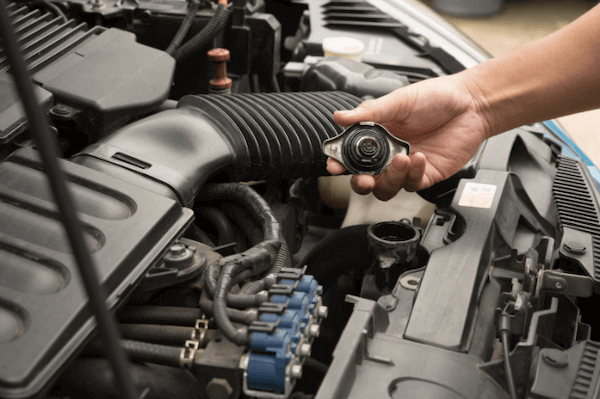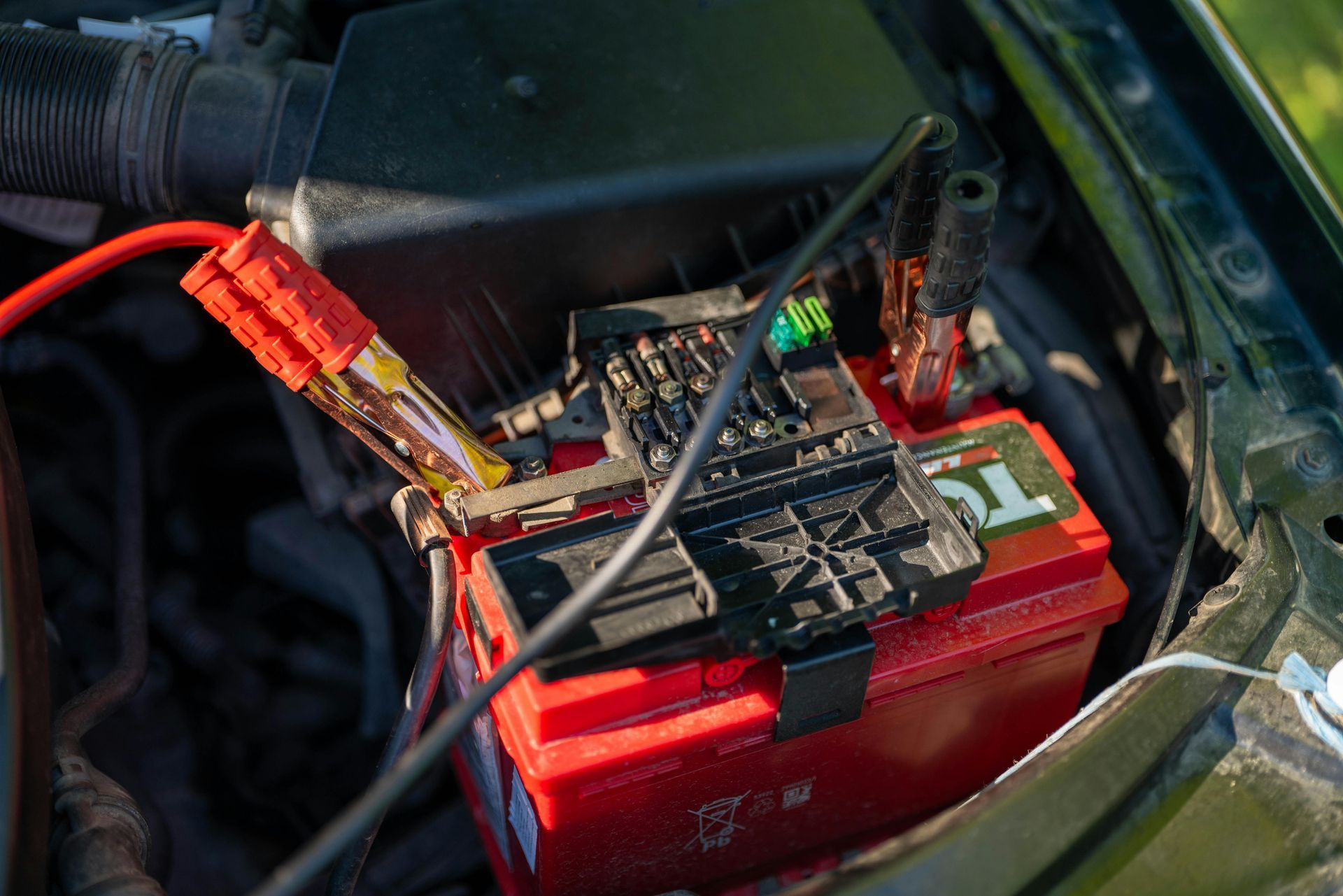Cold Weather Care: Radiator Repair, Coolant Flushes, & Hose Services
Auto Shops Located in: Chapel Hill, Durham, Taleigh, Apex, and Cary North Carolina

Cold weather can create all sorts of trouble for your vehicle. You might find your low tire pressure light on as the air begins to compress. Perhaps your battery light comes on as the cold makes it challenging for your vehicle to start. However, one less noticeable effect of the cold weather is radiator damage. Our local mechanics are here with everything you need to know about cold weather and vehicle radiator care.
Why is the Cold Weather Bad For Radiators?
You might be wondering, “Why does the cold weather put my radiator at risk?” When the temperatures begin to drop, the coolant inside your radiator can begin to partially freeze. While antifreeze will not freeze until it reaches -36℉, coolant is actually a mixture of antifreeze and water. Unlike antifreeze, water freezes at 32℉. As such, your radiator fluid can begin partially freezing during the cold winter nights.
Radiator Troubles and Cold Weather
So what happens when your radiator fluid begins to freeze? This process can cause a few adverse side effects, including:
- The metal components of your radiator can begin to contract
- Your radiator fluid can begin to expand
- Radiator fluid can leak through damaged components
- Your radiator hoses and hose clamps can become loose or damaged
In these cases, your vehicle will require professional radiator diagnostics and repair services. This may involve hose replacement, radiator replacements, hose tightening services, or coolant services, among others.
Preventing Radiator Damage in the Cold Weather
Thankfully, there are some steps you can take to keep your radiator protected. How do you prevent cold weather radiator troubles? Here are three main tips from our mechanics:
- Park in the Garage: The easiest way to stop the cold weather from impacting your radiator is to park in the garage. This will protect your car from frost and ease the impacts of the harshest temperatures.
- Vehicle Covers: If you cannot park in your garage, you might consider investing in a vehicle cover. These will help trap in the heat of your vehicle and insulate your engine from the cold.
- Radiator Fluid Flush: Your radiator will be especially prone to cold weather impacts if it hasn’t received proper care. Sludge and debris in your radiator can impact the coolant freezing point and make your radiator more susceptible to cold weather problems. As such, it is essential you maintain your manufacturer-recommended radiator fluid flush routine.
- Routine Vehicle Maintenance: During routine service visits—such as your oil changes—your mechanic should take a look under the hood to visually inspect your belts and hoses. This will allow you to catch certain radiator issues early and minimize damage.
Chapel Hill Tire Radiator Repair and Replacement Services
When your vehicle runs into winter radiator troubles, the local mechanics at Chapel Hill Tire can help. We offer the experienced care that you need to ensure that your vehicle is protected. Chapel Hill Tire proudly serves the greater Triangle area with 9 locations throughout Raleigh, Apex, Chapel Hill, Durham, and Carrboro. Our local mechanics offer convenient pick-up/delivery service—as well as a wide variety of coupons, deals, and promotions. We invite you to make your appointment here online or give us a call to get started today!
Cold weather can create all sorts of trouble for your vehicle. You might find your low tire pressure light on as the air begins to compress. Perhaps your battery light comes on as the cold makes it challenging for your vehicle to start. However, one less noticeable effect of the cold weather is radiator damage. Our local mechanics are here with everything you need to know about cold weather and vehicle radiator care.
Why is the Cold Weather Bad For Radiators?
You might be wondering, “Why does the cold weather put my radiator at risk?” When the temperatures begin to drop, the coolant inside your radiator can begin to partially freeze. While antifreeze will not freeze until it reaches -36℉, coolant is actually a mixture of antifreeze and water. Unlike antifreeze, water freezes at 32℉. As such, your radiator fluid can begin partially freezing during the cold winter nights.
Radiator Troubles and Cold Weather
So what happens when your radiator fluid begins to freeze? This process can cause a few adverse side effects, including:
- The metal components of your radiator can begin to contract
- Your radiator fluid can begin to expand
- Radiator fluid can leak through damaged components
- Your radiator hoses and hose clamps can become loose or damaged
In these cases, your vehicle will require professional radiator diagnostics and repair services. This may involve hose replacement, radiator replacements, hose tightening services, or coolant services, among others.
Preventing Radiator Damage in the Cold Weather
Thankfully, there are some steps you can take to keep your radiator protected. How do you prevent cold weather radiator troubles? Here are three main tips from our mechanics:
- Park in the Garage: The easiest way to stop the cold weather from impacting your radiator is to park in the garage. This will protect your car from frost and ease the impacts of the harshest temperatures.
- Vehicle Covers: If you cannot park in your garage, you might consider investing in a vehicle cover. These will help trap in the heat of your vehicle and insulate your engine from the cold.
- Radiator Fluid Flush: Your radiator will be especially prone to cold weather impacts if it hasn’t received proper care. Sludge and debris in your radiator can impact the coolant freezing point and make your radiator more susceptible to cold weather problems. As such, it is essential you maintain your manufacturer-recommended radiator fluid flush routine.
- Routine Vehicle Maintenance: During routine service visits—such as your oil changes—your mechanic should take a look under the hood to visually inspect your belts and hoses. This will allow you to catch certain radiator issues early and minimize damage.
Chapel Hill Tire Radiator Repair and Replacement Services
When your vehicle runs into winter radiator troubles, the local mechanics at Chapel Hill Tire can help. We offer the experienced care that you need to ensure that your vehicle is protected. Chapel Hill Tire proudly serves the greater Triangle area with 9 locations throughout Raleigh, Apex, Chapel Hill, Durham, and Carrboro. Our local mechanics offer convenient pick-up/delivery service—as well as a wide variety of coupons, deals, and promotions. We invite you to make your appointment here online or give us a call to get started today!















